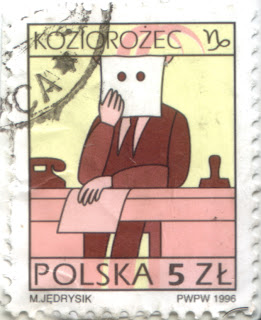Pete Seeger - Rainbow Race/Now/Young vs. Old (liner notes)
 The paradox of the United States of America is the historical problem of “democracy” as an idea and an ideal. Liberty & justice – but not for all. Settled partially by religious dissenters fleeing persecution in their homelands, the new freedoms they sought were seldom extended to the native inhabitants, or people of colour, or the poor, or even women. Thus had precursor “model Republics” (Athens, Rome) also been designed to exclude the toiling majority from the privileges of citizenship. Welcome to the new world...
The paradox of the United States of America is the historical problem of “democracy” as an idea and an ideal. Liberty & justice – but not for all. Settled partially by religious dissenters fleeing persecution in their homelands, the new freedoms they sought were seldom extended to the native inhabitants, or people of colour, or the poor, or even women. Thus had precursor “model Republics” (Athens, Rome) also been designed to exclude the toiling majority from the privileges of citizenship. Welcome to the new world...But just as those settlers fled across the Atlantic lake, so they also carried with them the seeds of fresh dissentings: the germination of new and revived ideas about civic virtue, and a universal franchise in the government of their lives. Enlightenment scrutiny of the social contract was underway; the rebellion that began in those 13 colonies made the return trip to France and beyond.
And perhaps this is the reason for a nation birthed from revolution, but whose rulers have so often been in terror of even modest reform. Sometimes those fears have extended to the arts. In the modern era we recognise attempts at centralised control of culture as the mark of a totalitarian state, but Pete Seeger is not the only US artist to have suffered government injunctions.
Seeger proceeds from New England privilege, and a scrupulously Calvinist dedication to mission. He shares the progressive politics and ardour for music of his parents and stepmother. Father, Charles, had been forced from a position as Foundation Professor of music at the Berkeley campus of UCLA, due to his public opposition to US involvement in World War I; later he taught at Juilliard. Stepmother, Ruth Crawford, was both a prominently atonal modernist, and an early champion of US folk music traditions.
If Pete Seeger enjoyed the benefits of this patrician background early in his life, what is remarkable is where his subsequent experience has led him. Mentored by Huddie Ledbetter & Bascom Lamar Lunsford, who schooled him in the instrumental techniques of guitar and banjo... Friend & fellow traveller to Woody Guthrie, with whom he shared proto-beat highway wanderings and a busking minstrelsy... Colleague to John Lomax at the Library of Congress, working at the preservation and revival of a neglected musical heritage. By his twenties Seeger had achieved the synthesis of dual vocations as a social activist and musical performer: an effective partisan for the culture and concerns of ‘just plain folks’.
Seeger came of age in a halcyon era for US politics: the New Deal administration of Franklin Delano Roosevelt. It was an extended, but singular, moment, which sought to reconcile progressive ideals to the preservation of a (kinder, gentler) capitalist economy. In many respects, subsequent US governments delivered a Great Leap Backwards. 17 years on the blacklist sundered one promise of Seeger’s early career – the limelight prominence of chart success – and reconfirmed him in the bardly chronicling of causes which were seldom popular.
These 2 CDs gather Pete Seeger’s final recordings for Columbia label. Initially signed by John Hammond in the early 1960s, his presence on the Columbia roster leant the company a considerable prestige (it was reportedly the reason that Bob Dylan joined him as a labelmate), but Seeger’s aversion to mercantilism and strongly-voiced political opinions made his records a difficult prospect to market. A national television blacklist was only lifted in 1967, after an outraged campaign in the US national press. Columbia sales reps struggled to fit Seeger’s work to existing markets, and senior executives were rarely sympathetic to his paladin altruism.
(etc)
available now from the Omni Recording Corporation
Elsewise! Seeger gets his apology
And: more good news
Labels: liner notes, Omni Recording Corporation, Pete Seeger


0 Comments:
Post a Comment
<< Home